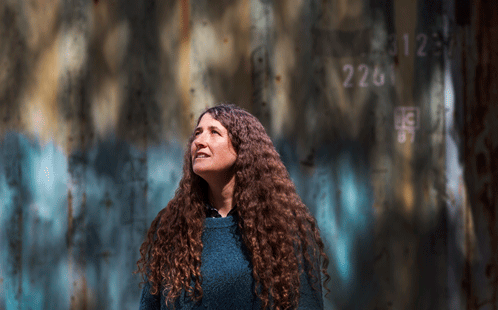Western Sydney University academic wins prestigious Georgina Sweet Australian Laureate Fellowship

Photo credit: Sally Tsoutas
Professor Belinda Medlyn from the Hawkesbury Institute for the Environment has been named the 2019 ARC Georgina Sweet Australian Laureate Fellow.
Awarded to one female academic in the science, technology, engineering or mathematics disciplines each year, the prestigious Australian Research Council (ARC) Fellowship scheme supports outstanding Australian and international researchers to build Australia’s research capacity, undertake innovative research programs and mentor early career researchers.
Professor Medlyn said she was thrilled to have the opportunity to advocate for women in research.
“In my role as Georgina Sweet Australian Laureate Fellow I particularly want to foster a discussion around alternative career pathways. I’m hoping that my own experience, of working part-time for ten years while my children were small, then winning a Laureate nine years later will serve as an example and inspiration.
“I’m also hoping to spread the word to girls and women about the importance of maths and computing in all fields of science. My own field is ecology, but my background is in mathematics. It’s noticeable that while there are many women working in ecology, there are many fewer working in computational ecology – yet that’s where many of the most important advances are being made right now. Building women’s confidence in the areas of maths and computing is crucial to improving women’s representation in science across the board,” said Professor Medlyn.
Professor Medlyn’s win of the Georgina Sweet Australian Laureate Fellow comes on the back of being named Western Sydney University’s first Australian Laureate Fellow. Professor Medlyn’s project ‘A unified dynamic vegetation model for Australia’ being awarded $3,108,997 from the ARC. This project aims to synthesise current theory and data to develop a predictive, process-based model for Australian vegetation dynamics in response to environmental change.
“Climate clearly plays a huge role in determining what plants can grow where. With climate changing, Australia’s vegetation is very likely to change too. That will have big implications – for biodiversity, agriculture, bushfire management, water supply, and the climate itself.
“At the moment, however, there’s no way for us to predict what changes to expect where. It’s a big, complex question, because there are so many different factors involved – atmospheric CO2 concentration, temperature, humidity, drought, and fire, to name just a few. Up until now we’ve had no way to pull all of that information together; each research study in this area just gives us one piece of the jigsaw puzzle.
“My aim for this Laureate Fellowship is to finally put this jigsaw puzzle together. We will draw on a wide range of research from around Australia to build a community model that will allow us to predict what vegetation grows where, and how that is likely to change in future.
“The need for a model like this could not be more urgent. Climate change is already upping the frequency of droughts, heatwaves, and bushfires, and catching us unprepared. The more we know about what to expect in future, the better we’ll be able to prepare and adapt,” said Professor Medlyn.
Deputy Vice-Chancellor (Research and Innovation) Professor Deborah Sweeney commended Professor Medlyn on her Fellow success.
“Professor Medlyn’s success reiterates her reputation as an exceptional scientist and ambassador for Western Sydney University. With her world-leading and innovative research preparing for a climate change impacted future, Professor Medlyn has an impressive scientific track record and is an inspirational role model for female researchers – and all future scientific leaders.”
ENDS
10 October 2019
Mobile options:

